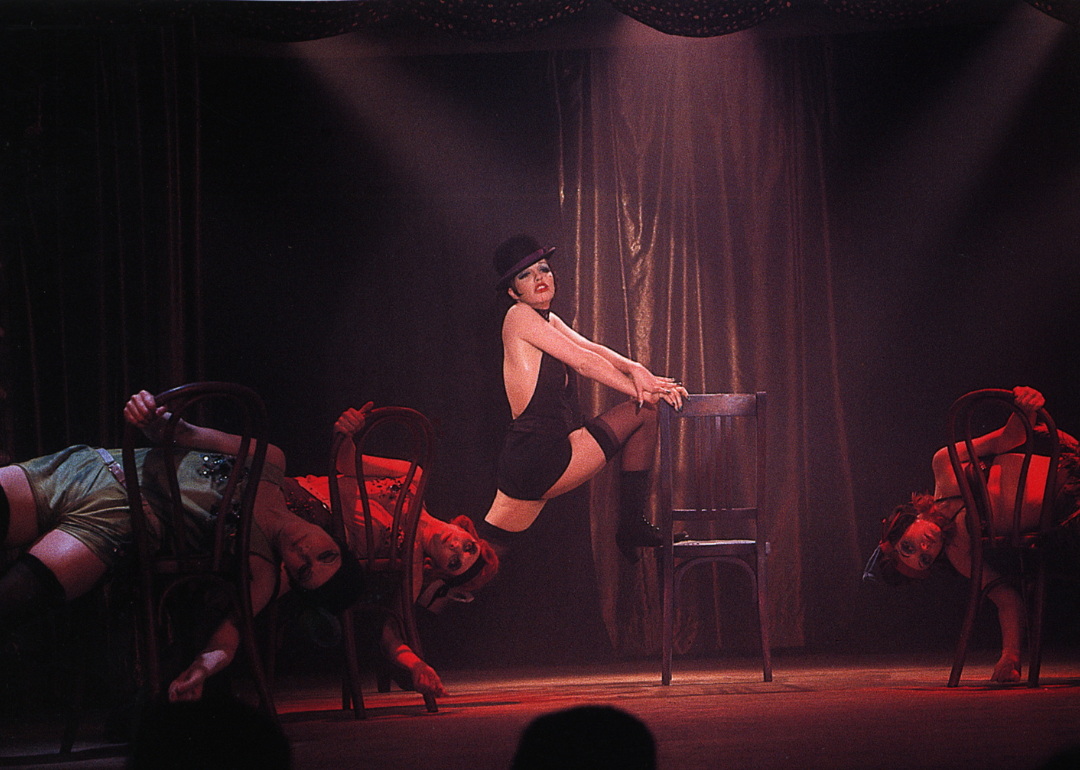
Best Picture losers that won the most Oscars at their ceremony
Best Picture losers that won the most Oscars at their ceremony
The Oscars may be the biggest (and oldest) awards in the film industry, but they're also the most mysterious for many outsiders. For those of us in the audience who just love movies and want to see them celebrated, it's not always clear how the dozens of nominees are selected, classified, and voted on. It turns out the process is much simpler than you might think.
For many of the individual awards, there are a handful of guidelines that the project must meet in order to be eligible for consideration—though many of these guidelines have changed since 2020 to help create a more diverse selection of films.
As long as the film meets all the necessary criteria, studios submit their films for awards consideration by the Academy of Motion Picture Arts and Sciences—and then spend millions of dollars on popularity campaigns in attempt to win the votes of registered Academy members, who select their favorites via official ballots. Some categories, like Best Picture, are decided by preferential ballot, where voters rank the nominated films in the category by order of preference.
Theoretically, these methods of voting and campaigning are meant to ensure that the most widely liked films and performances are recognized, but the process isn't perfect. Often, what most cinephiles think of as the most deserving or popular projects still don't win. In fact, there have been a number of instances over the years where films have garnered an impressive number of wins or nominations, but lost out on the biggest prize of the night: Best Picture. Sometimes, this is because a film is more appreciated for its technical achievements—think "Life of Pi" and "Gravity"—or for its stylistic choices, like Wes Anderson's "The Grand Budapest Hotel." Other times, as with now-classic films like "Citizen Kane," many would agree that the Academy simply gets it wrong.
Stacker used data from the Academy Awards to look at the films that won the most Oscars at each of the past 90 Academy Awards ceremonies and highlighted 25 that were up for Best Picture but didn't take home the award, despite their dominance across the rest of their respective ceremonies. The films are ranked by least to most overall wins, with ties broken by the film with the most nominations. In the case of ties between films nominated the same year for most Oscar wins, all films were included on the list. Some of the films included on the list tied with the eventual Best Picture winner for the most wins from their ceremony.
Between box office hits like "Inception" and perennial favorites like "Butch Cassidy and the Sundance Kid," there are sure to be a few titles on here whose Best Picture losses still make fans' blood boil.
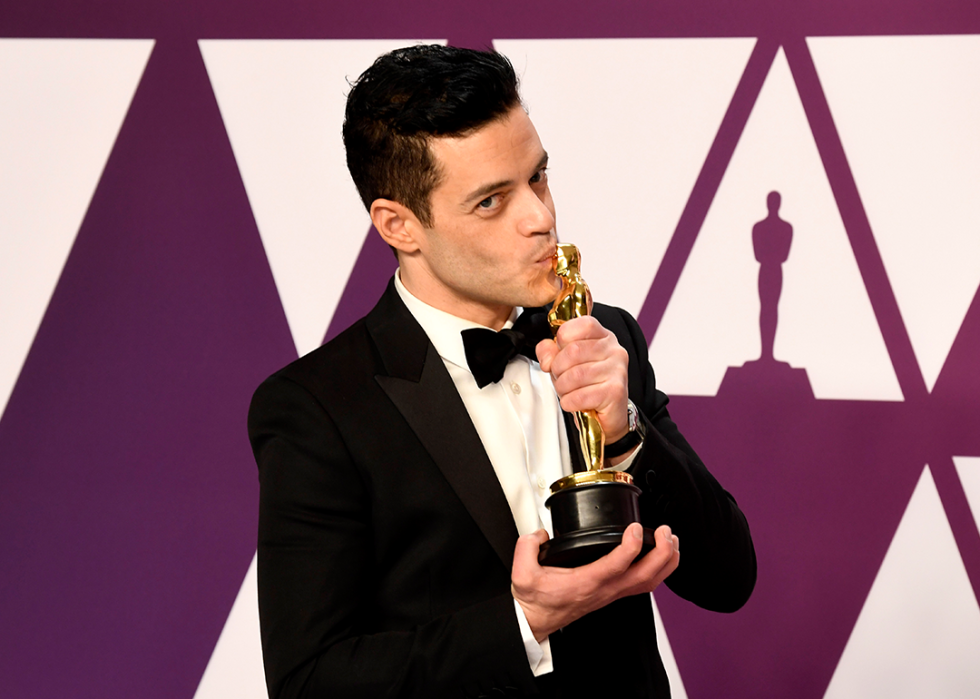
#25. Bohemian Rhapsody
- Ceremony: 91st (2019)
- Oscar wins: 4
- Oscar nominations: 5
Rami Malek stars in this musician biopic that follows the life and rise to fame of Queen frontman Freddie Mercury. Though hugely popular at the box office—the film grossed nearly $1 billion worldwide—it was decidedly less of a hit with critics, who bemoaned the way it glossed over Mercury's sexuality and failed to delve into the trickier parts of his life. The rumors surrounding director Bryan Singer's alleged misconduct and subsequent firing from the film also likely complicated the film's shot at a Best Picture win before voting even began.
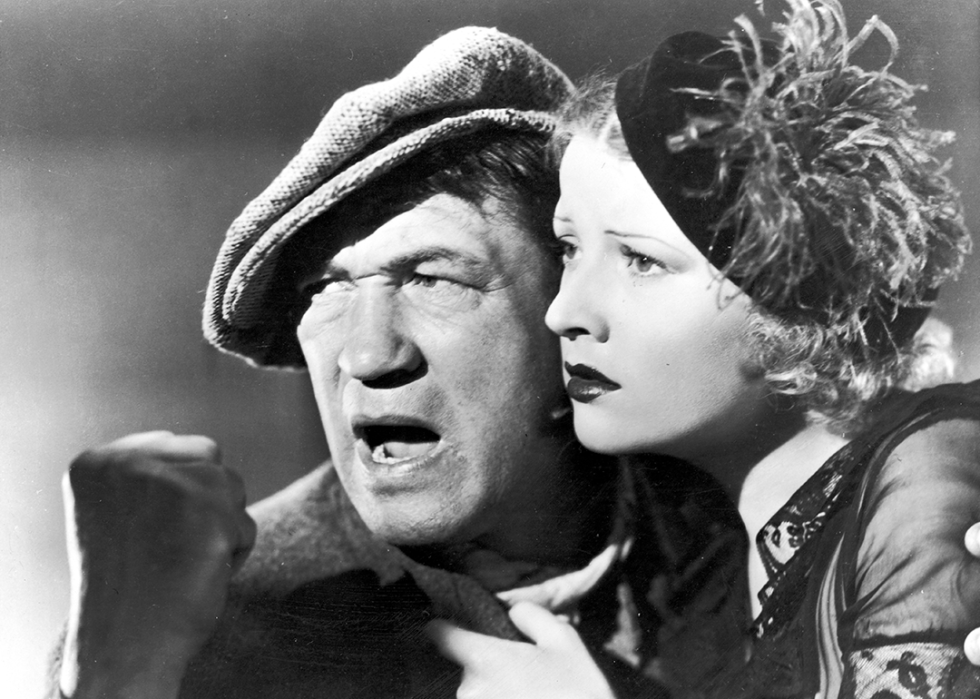
#24. The Informer
- Ceremony: 8th (1936)
- Oscar wins: 4
- Oscar nominations: 6
Based on a novel of the same name, "The Informer" follows a disgraced Irish Republican who reports on his fellow IRA comrades and then struggles to deal with the repercussions of such a major betrayal. Directed by John Ford, the movie was described by The New York Times as a "sleeper" thanks to its unremarked-upon release, but by the time Best Picture voting rolled around, it seemed like a shoo-in for the top prize due to its number of nominations. In the end, however, it lost to "Mutiny on the Bounty," which won Best Picture but lost in all seven of its other nominated categories.
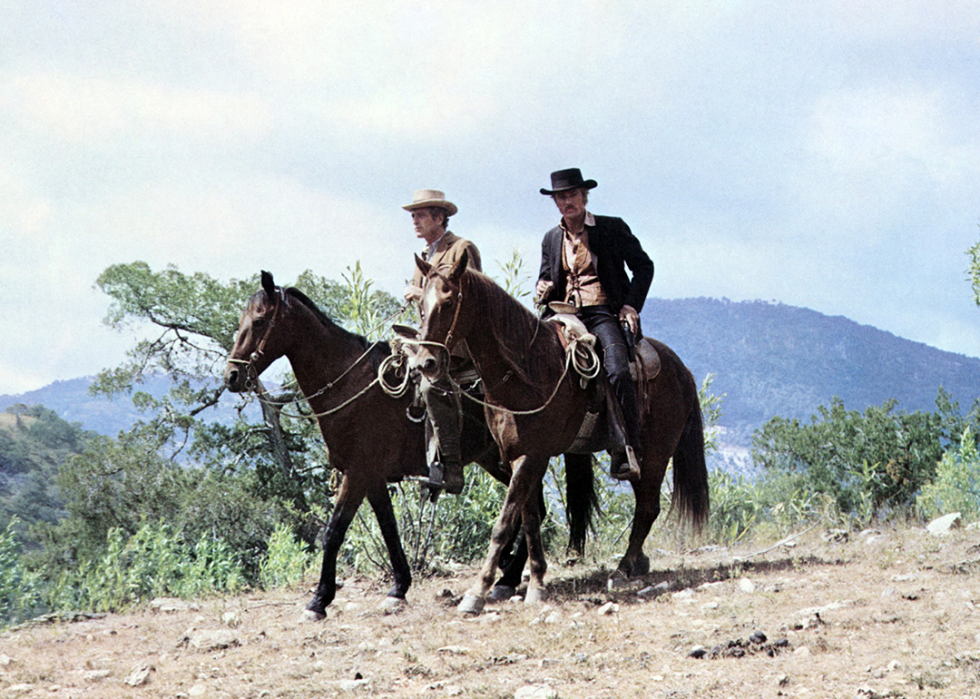
#22. Butch Cassidy and the Sundance Kid (tie)
- Ceremony: 42nd (1970)
- Oscar wins: 4
- Oscar nominations: 7
"Butch Cassidy and the Sundance Kid" was inspired by tales of the early-1900s outlaws of the same name. The film stars Paul Newman and Robert Redford as the titular characters, and was a box office sensation, becoming the highest-grossing film of 1969. Because of its popularity, the film should have been a strong contender for the Best Picture Oscar in 1970, but critics' reviews were relatively mixed. Roger Ebert summed up its shortcomings, noting, "This good movie is buried beneath millions of dollars that were spent on 'production values' that wreck the show."
Though "Butch Cassidy" lost out on the night's biggest award to the X-rated "Midnight Cowboy," the film has since been reappraised by critics, earning a spot on the Library of Congress' National Film Registry.
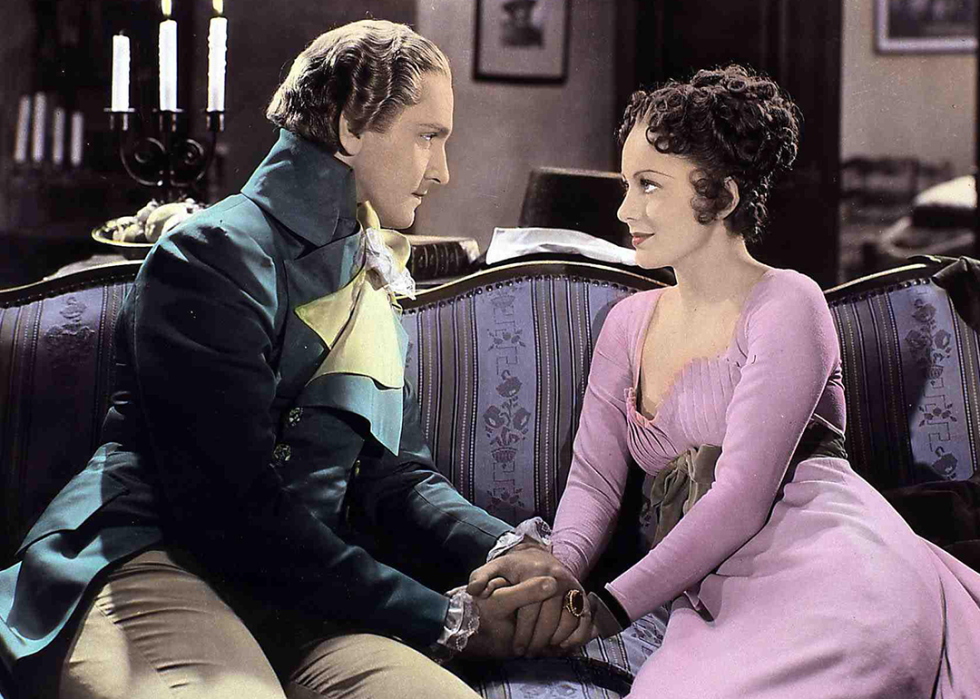
#22. Anthony Adverse (tie)
- Ceremony: 9th (1937)
- Oscar wins: 4
- Oscar nominations: 7
"Anthony Adverse" is an epic drama that follows one man as he gallivants around the world, falling in love and discovering his identity. Based on a 1933 bestselling novel of the same name, the movie starred legendary Hollywood Golden Age actors Fredric March and Olivia de Havilland. The film missed out on the Oscar for Best Picture, which likely did not surprise critics who generally dismissed it. One reviewer writing for The New York Times called it "bulky, rambling, and indecisive." Despite missing out on the night's biggest award, "Anthony Adverse" did earn Gale Sondergaard the first-ever Best Supporting Actress trophy.
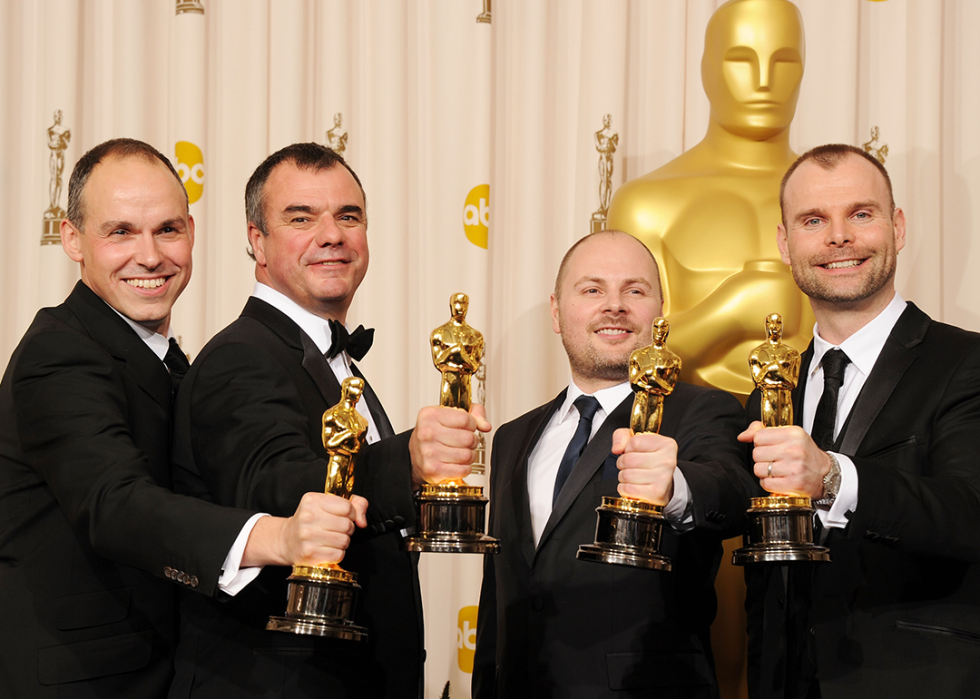
#18. Inception (tie)
- Ceremony: 83rd (2011)
- Oscar wins: 4
- Oscar nominations: 8
Directed by Christopher Nolan, this twisty sci-fi blockbuster takes place in a world where dream-sharing technology exists and history can be changed by implanting ideas in an individual's subconscious. The movie's smart scripting and ingenious acting from the likes of Leonardo DiCaprio, Cillian Murphy, Marion Cotillard, and Elliot Page had some betting that it would take home the Oscar's top honor, but in the end, it lost to Tom Hooper's "The King's Speech," which also won four Oscars that year.
Notably, while "Inception" was nominated for both Best Picture and Best Screenplay, Nolan himself was left off of the Best Director ballot that year, an oversight that was finally rectified with his nomination for "Dunkirk" at the 2018 Oscars, as well as his "Oppenheimer" directing nod in 2024.
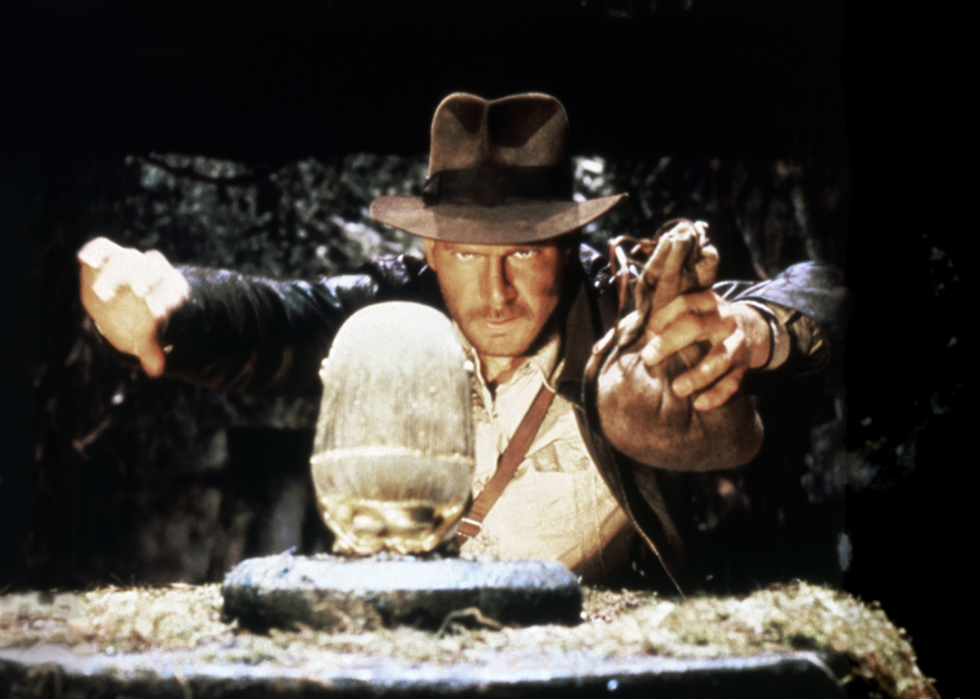
#18. Raiders of the Lost Ark (tie)
- Ceremony: 54th (1982)
- Oscar wins: 4
- Oscar nominations: 8
Generally considered one of the best action movies ever made, "Raiders of the Lost Ark" launched the popular "Indiana Jones" film franchise, spawning four sequels released between 1984 and 2023. The Steven Spielberg-directed caper follows a globe-trotting archeologist, iconically depicted by Harrison Ford, as he races to find the legendary Ark of the Covenant ahead of the Nazi army. Given how influential the film has been on cinema and pop culture as a whole, it's shocking to recall that it didn't win the Best Picture trophy, losing to sports drama "Chariots of Fire."
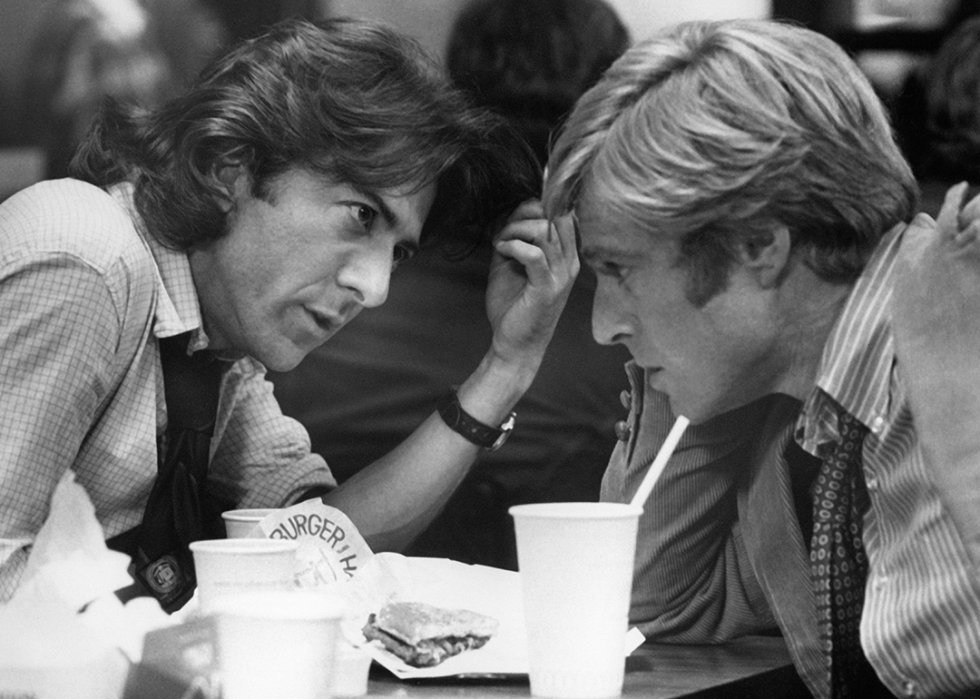
#18. All the President's Men (tie)
- Ceremony: 49th (1977)
- Oscar wins: 4
- Oscar nominations: 8
"All the President's Men," a political thriller about the Watergate scandal starring Robert Redford and Dustin Hoffman, lost out on the Best Picture Oscar in a year full of undeniably strong contenders, including "Taxi Driver," "Network," and the eventual winner, "Rocky." At the time, "All the President's Men" was well-positioned to take home the award, based on both positive critical response and box office popularity. In retrospect, the Academy would likely make a different choice: In a poll of hundreds of Academy members by The Hollywood Reporter in 2015, Oscars voters indicated they'd give the trophy to the drama today if given the chance to have a do-over.
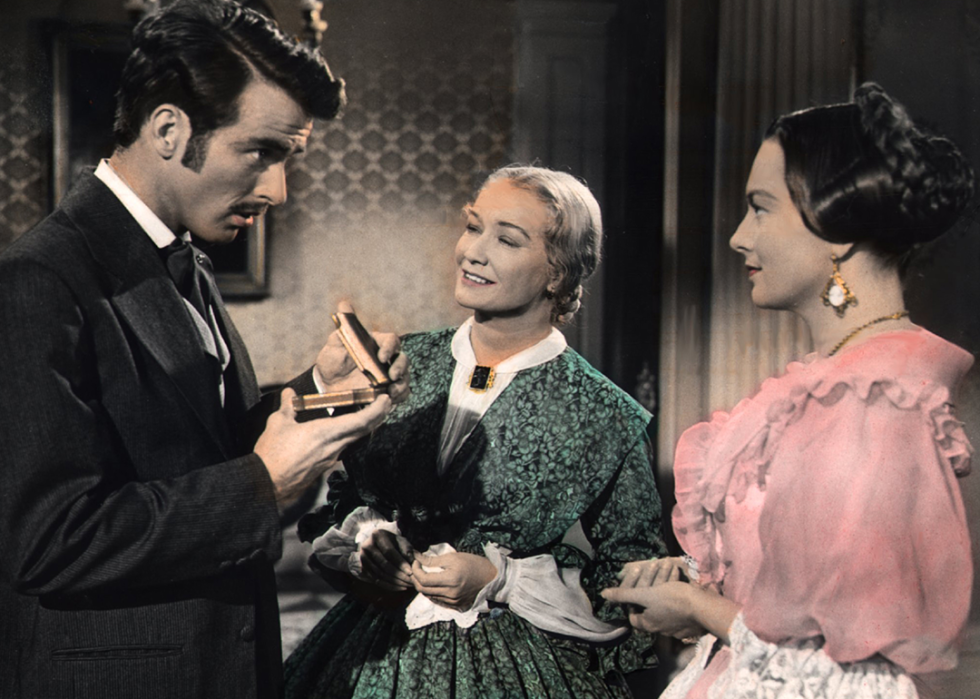
#18. The Heiress (tie)
- Ceremony: 22nd (1950)
- Oscar wins: 4
- Oscar nominations: 8
Based on a Henry James novel titled "Washington Square," "The Heiress" follows a wealthy young woman who falls in love with a man who's (possibly) nothing more than a gold digger. Dubbed "a triumph of classic Hollywood filmmaking" by the Criterion Collection, the movie wasn't a huge commercial success, but it did so well with critics that it earned Olivia de Havilland her second Best Actress trophy. However, it lost the Best Picture award to "All the King's Men."
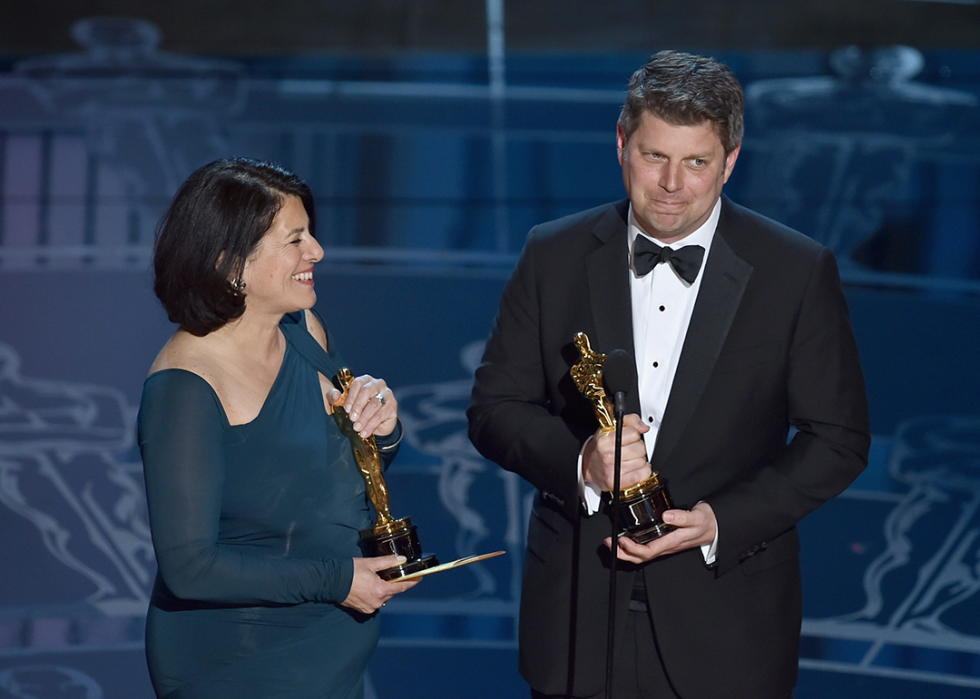
#16. The Grand Budapest Hotel (tie)
- Ceremony: 87th (2015)
- Oscar wins: 4
- Oscar nominations: 9
Written and directed by Wes Anderson, "The Grand Budapest Hotel" follows the drama and scandals of the staff at a ritzy hotel in Eastern Europe. While critics and fans alike delighted in the film's simultaneous whimsy, comedy, and seriousness, the Academy wasn't quite as enthused. Despite being nominated for Best Picture, Director, and Original Screenplay, the film lost out on those categories to "Birdman."
Writing for Slate, David Haglund predicted the film's Best Picture and Best Original Screenplay losses, noting that Anderson's films have never been popular among the Academy because he doesn't campaign for awards, his films are comedy-oriented rather than self-serious, and his style is too "distinctive."
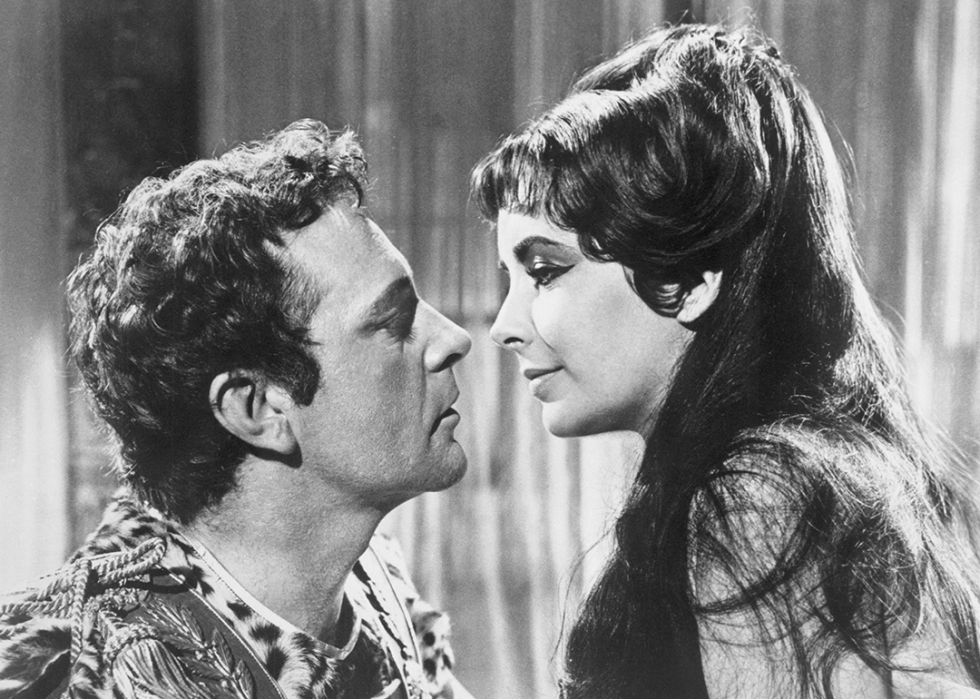
#16. Cleopatra (tie)
- Ceremony: 36th (1964)
- Oscar wins: 4
- Oscar nominations: 9
You don't need to have been around in the '60s, or even to have ever watched "Cleopatra," to be aware of the drama that surrounded the making of the historical epic. From nearly bankrupting 20th Century Fox to the affair between its leads, Richard Burton and Elizabeth Taylor, the film was a tabloid spectacle from the very beginning—which, of course, meant it was a must-see for audiences. In the end, it was the highest-grossing movie of 1963, but even its popularity couldn't overcome its weak Oscar campaign in the eyes of the Academy.
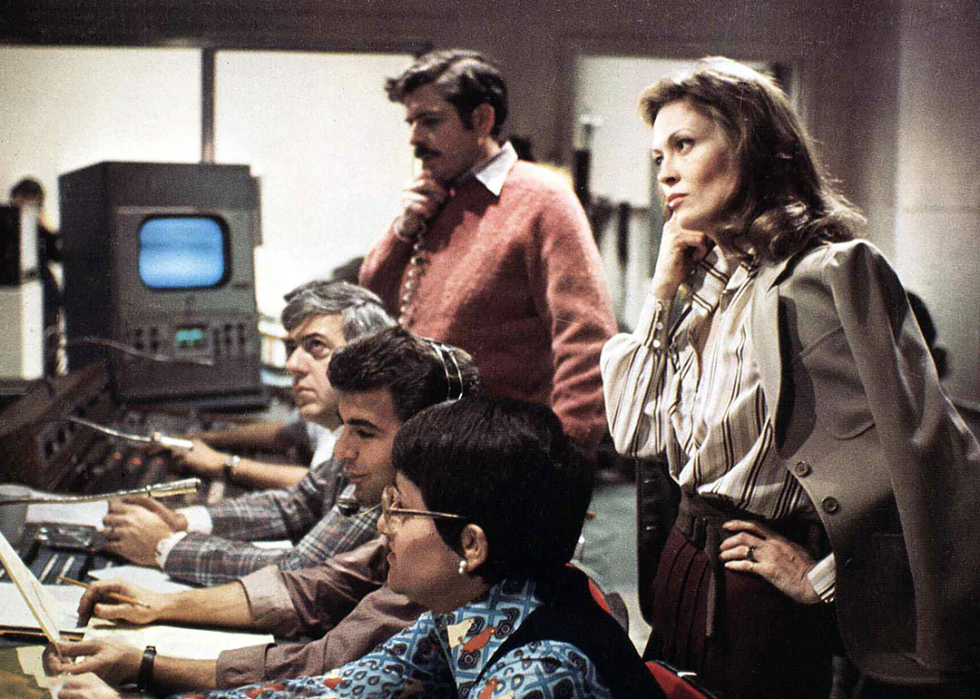
#15. Network
- Ceremony: 49th (1977)
- Oscar wins: 4
- Oscar nominations: 10
Described retrospectively by Vanity Fair as a "scorching satire," "Network" is a drama about the demise of a fictional TV network. Released to critical acclaim, the movie won a slate of Oscars, including Best Original Screenplay, Best Actor, Best Actress, and Best Supporting Actress, which Beatrice Straight won despite only being on screen for five minutes. The film lost in that year's jam-packed Best Picture category, however, to "Rocky." Despite that loss, "Network" remains, for many critics, one of the best ever made.
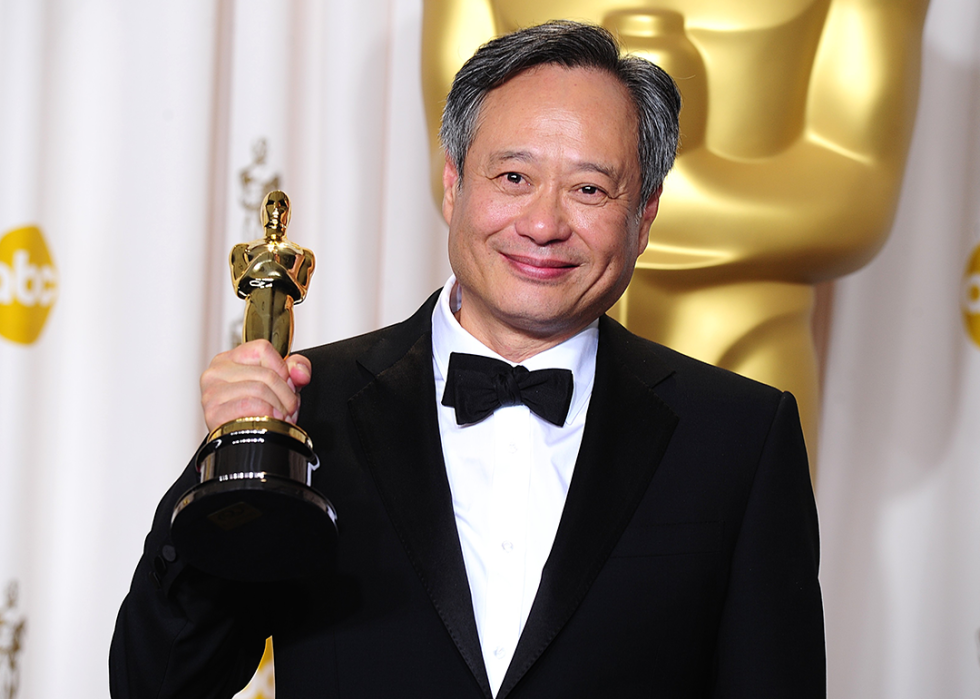
#14. Life of Pi
- Ceremony: 85th (2013)
- Oscar wins: 4
- Oscar nominations: 11
Based on a novel of the same name by Yann Martel, "Life of Pi" follows two shipwreck survivors—a teenage boy and a Bengal tiger—as they float around the Pacific Ocean in a lifeboat for 227 days awaiting rescue. The movie was quite successful at the box office, particularly internationally, and it ultimately won Oscars for Best Director, Best Cinematography, Best Visual Effects, and Best Original Score. However, it ultimately lost the Oscar for Best Picture to Ben Affleck's "Argo." "Life of Pi" received a fair share of backlash after winning the Oscar for Best Cinematography since the film's visuals were mostly digitally created.
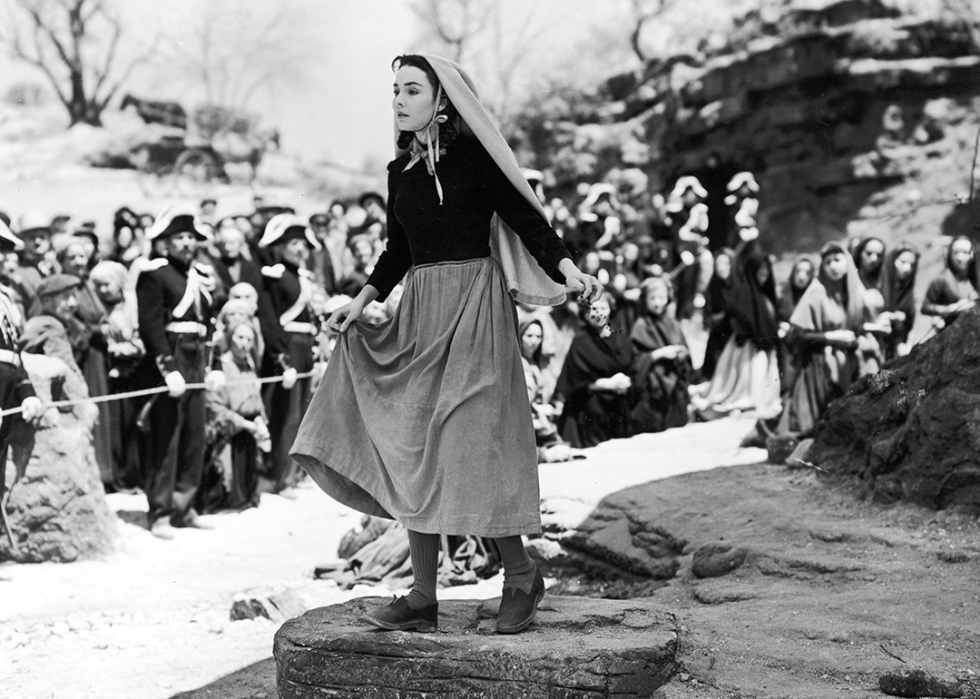
#13. The Song of Bernadette
- Ceremony: 16th (1944)
- Oscar wins: 4
- Oscar nominations: 12
In "The Song of Bernadette," Jennifer Jones plays the titular character, a young woman who allegedly experienced 18 visions of the Virgin Mary and was eventually canonized as a saint. While the film swept the inaugural Golden Globes, taking home Best Picture, Best Director, and Best Actress, it was less successful at the Oscars, where it lost several major awards to "Casablanca." Considering which of the two films has stood the test of time, few could successfully argue that "Bernadette" was cheated in the Best Picture category.
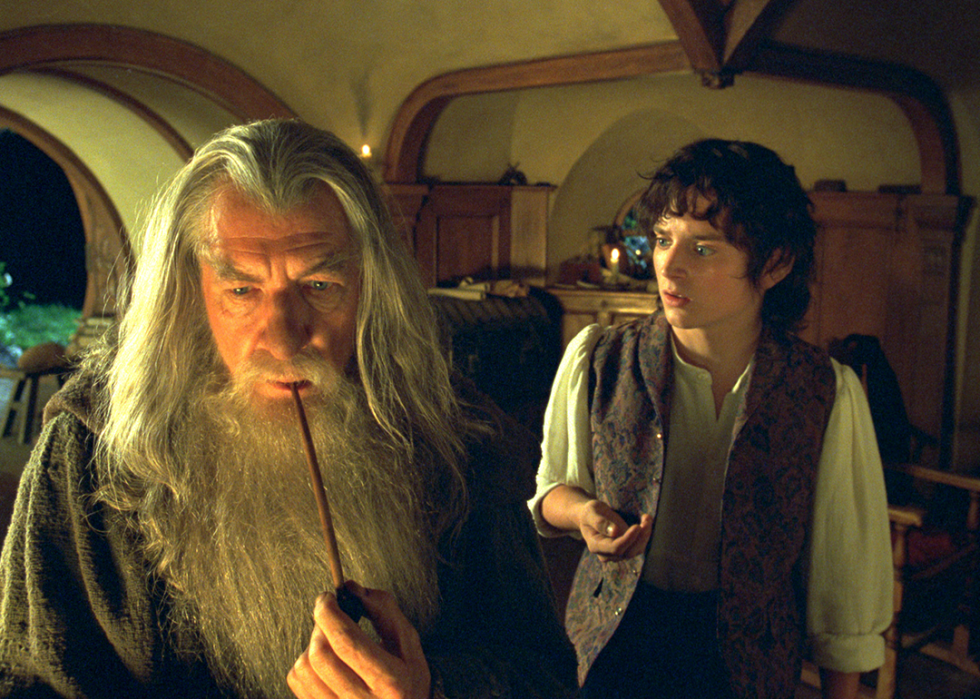
#12. The Lord of the Rings: The Fellowship of the Ring
- Ceremony: 74th (2002)
- Oscar wins: 4
- Oscar nominations: 13
The first installment in Peter Jackson's J.R.R. Tolkien adaptations, "The Lord of the Rings: The Fellowship of the Ring" was a groundbreaking movie. The fantasy film was an instant hit with critics and audiences alike, with one Empire reviewer calling it "the first installment of the best fantasy epic in motion picture history."
While "Fellowship of the Ring" took home a decent number of awards, it was perhaps a little too ahead of its time to win Best Picture—that wouldn't happen for the "Lord of the Rings" franchise until the 2004 Oscars ceremony, when "Return of the King" swept every category for which it was nominated, winning 11 Oscars. Nonetheless, "Fellowship of the Ring" broke genre barriers that had limited the success of fantasy, science fiction, and horror films previously at the Academy Awards.
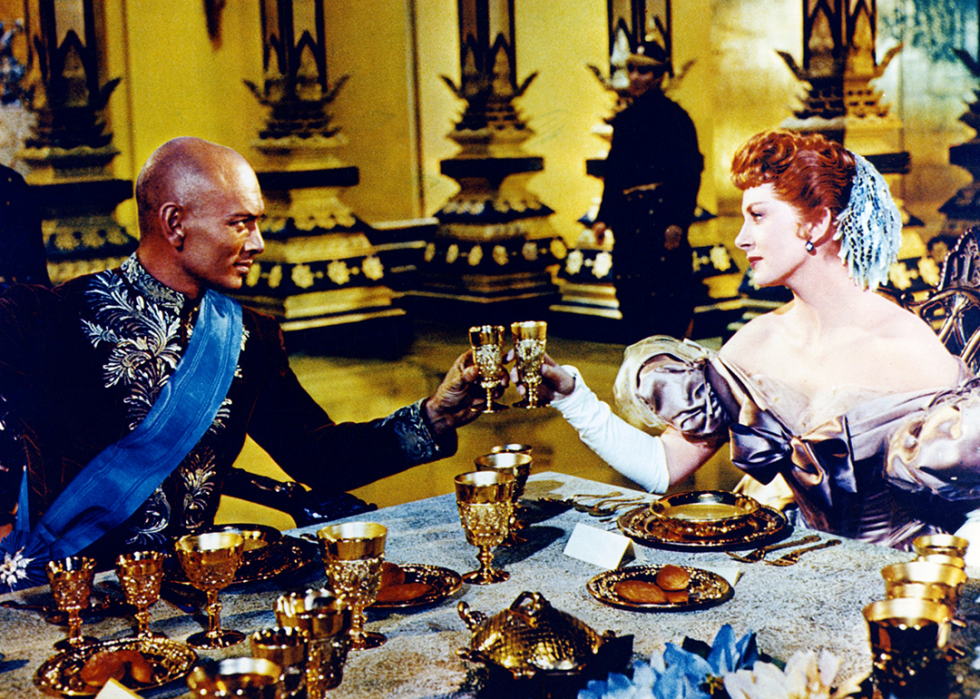
#11. The King and I
- Ceremony: 29th (1957)
- Oscar wins: 5
- Oscar nominations: 9
"The King and I" adapted the classic Rodgers and Hammerstein musical about an American schoolteacher who falls in love with the king of Siam. The film won a host of awards for things like its score and sound work, in addition to Best Actor for Yul Brynner, but fell short of taking home the top prize at the 1957 Academy Awards. This perhaps isn't all that surprising, considering only 10 musicals have ever taken home the Best Picture trophy. Among those winners, films like "The Sound of Music" and "West Side Story" have transcended their movie-musical origins to become time-tested cinematic classics.
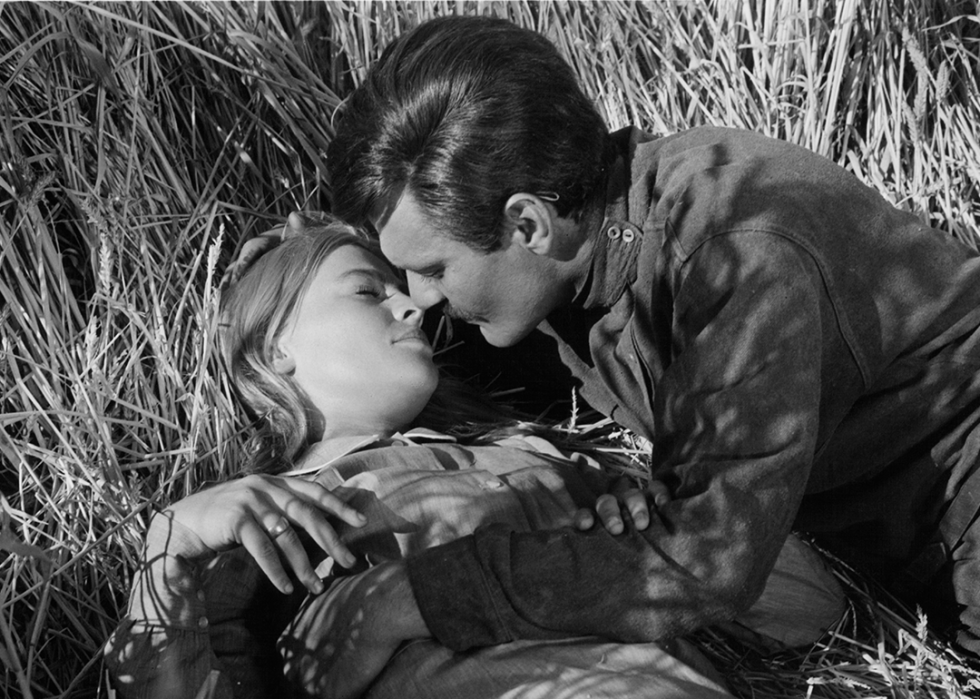
#10. Doctor Zhivago
- Ceremony: 38th (1966)
- Oscar wins: 5
- Oscar nominations: 10
Set in Russia during the First World War and the Russian Civil War, "Doctor Zhivago" is an epic historical romance that stars Omar Sharif and Julie Christie. While viewers flocked to see the film, making it the second-highest-grossing movie of 1965, critics complained that "Doctor Zhivago" made light of the Russian Revolution and dragged the romantic plotline out into a 3-hour-plus run time. Ultimately, Academy voters picked "The Sound of Music," a warmer, more hopeful wartime film, as the year's top production.
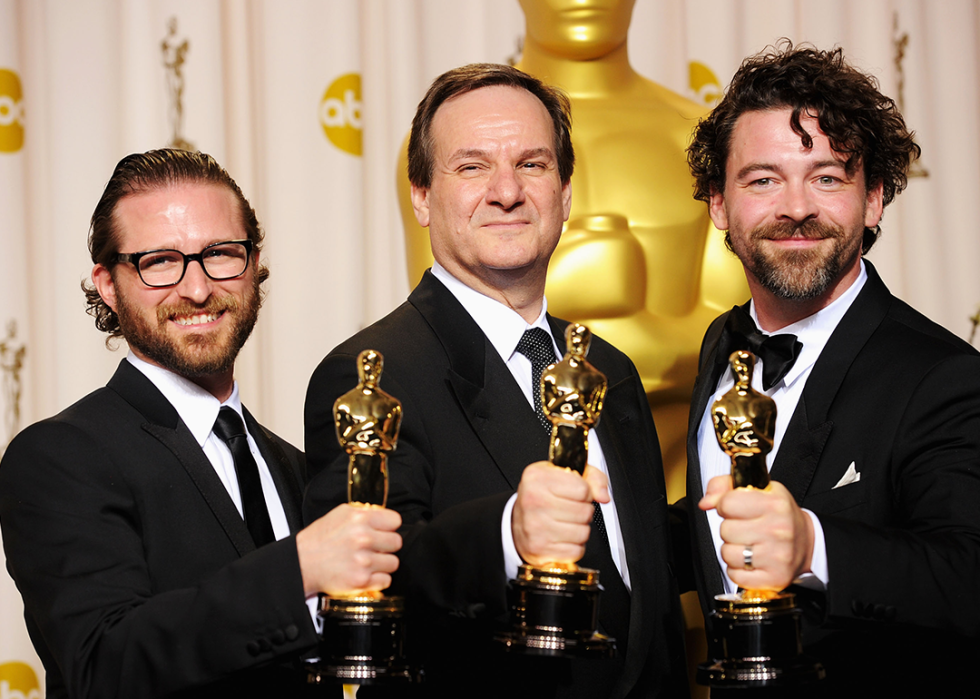
#8. Hugo (tie)
- Ceremony: 84th (2012)
- Oscar wins: 5
- Oscar nominations: 11
"Hugo," Martin Scorsese's fantasy adventure film about a boy living alone in a Paris train station who finds himself caught up in a mystery surrounding his late father, earned more Academy Award nominations than any other movie at the 84th Oscars. Despite the critical support behind it, the film was still beaten by "The Artist," a black-and-white romance about the transition away from the silent film era in Hollywood. Given the nostalgic subject matter for the film industry present in "The Artist" and distributor Harvey Weinstein's history of strong Oscar campaigns with nearly unbeatable tactics—some above board, some not—this outcome was perhaps not surprising.
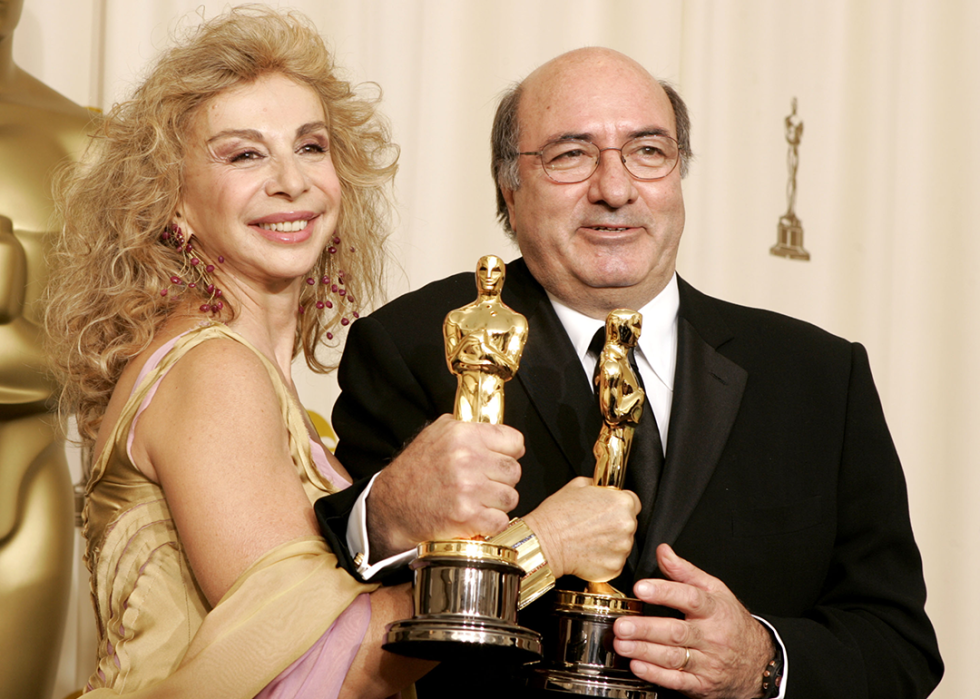
#8. The Aviator (tie)
- Ceremony: 77th (2005)
- Oscar wins: 5
- Oscar nominations: 11
Another Martin Scorsese film, "The Aviator" follows the life of Howard Hughes over the course of 20 years as he becomes a Hollywood powerhouse, an aviation pioneer, and increasingly struggles with obsessive-compulsive disorder. Starring Leonardo DiCaprio and Cate Blanchett, many critics raved about the film. Not everyone was convinced by DiCaprio's performance, however; MTV News suggested "The Aviator" may have lost out on the top prize to "Million Dollar Baby" because DiCaprio was too young to play Hughes, particularly as the character ages toward the end of the film.
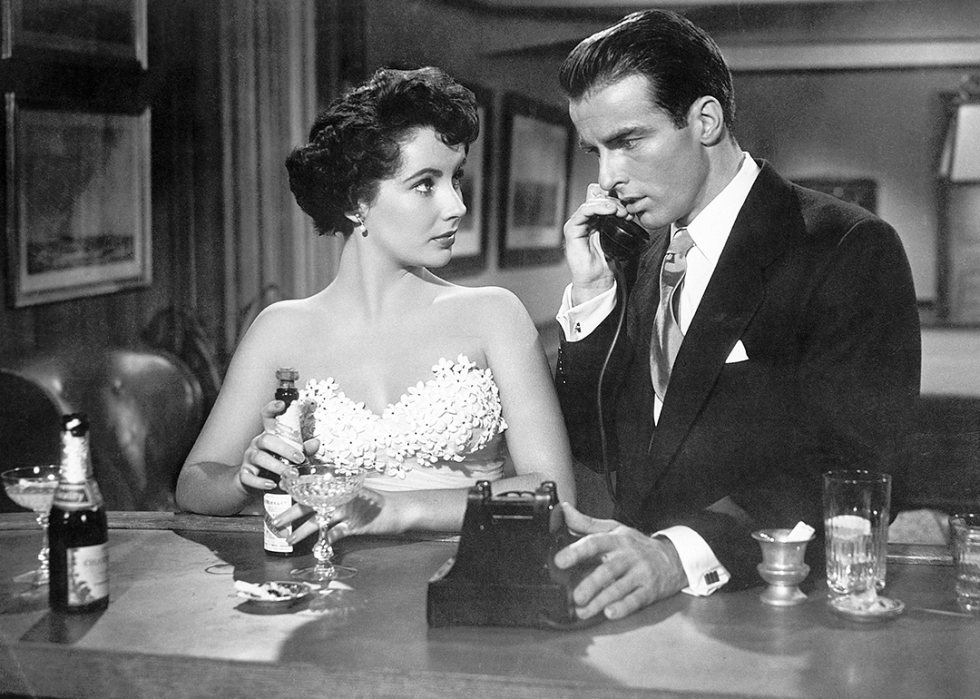
#7. A Place in the Sun
- Ceremony: 24th (1952)
- Oscar wins: 6
- Oscar nominations: 9
Despite its inclusion on lists of the greatest films ever made, "A Place in the Sun" is one among many highly acclaimed films that didn't actually win the Oscar for Best Picture. The movie follows the complicated love triangle between a young man (Montgomery Clift), the woman he gets pregnant (Shelley Winters), and his true love (Elizabeth Taylor). "A Place in the Sun" was a commercial success and was well-received by critics. The film also won six Oscars, including Best Director and Best Screenplay. However, its inclusion of subjects that flouted the conservative Hays Code, like abortion and premarital sex, may have kept it from winning Best Picture.
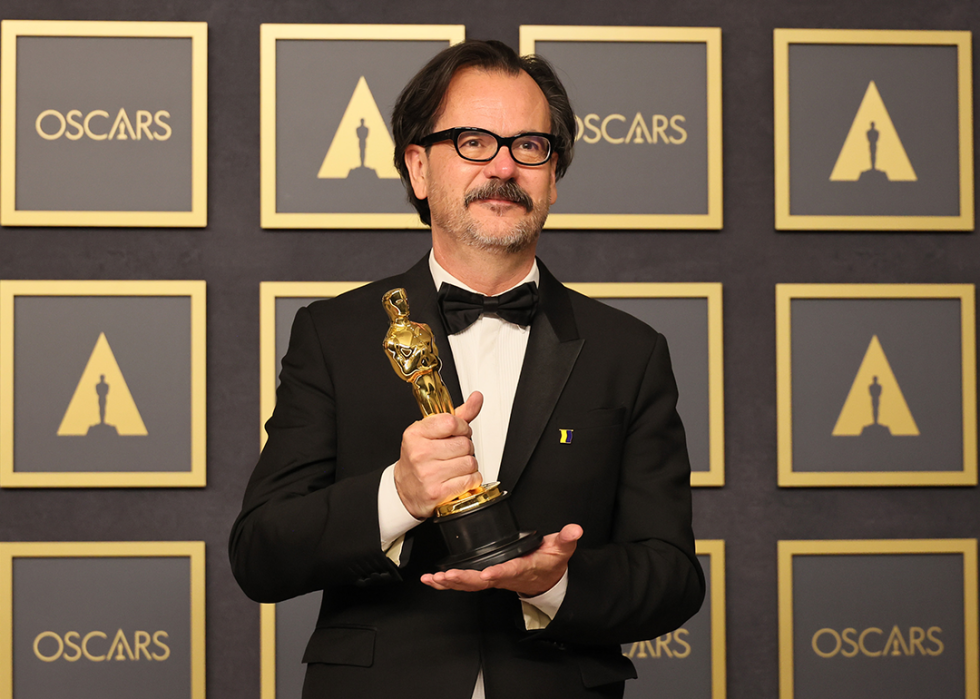
#4. Dune (tie)
- Ceremony: 94th (2022)
- Oscar wins: 6
- Oscar nominations: 10
Set in the far future on the fictional planet Arrakis, this sci-fi drama is the first of a two-part adaptation of Frank Herbert's classic novel. Directed by Denis Villeneuve and featuring an all-star cast including Timothée Chalamet, Zendaya, and Oscar Isaac, the film had impressive special effects, a jaw-dropping score, and the perfect amount of scope and ambition—all the necessary ingredients for Best Picture glory.
But the fact that it was old material—the story was previously adapted for film by David Lynch—and considered fairly genre-forward perhaps lessened its chances of taking home the Best Picture trophy. These factors, coupled with the Academy's reputation for not always choosing big-budget blockbuster films for Best Picture, left "Dune" picking up its six Oscars for mostly technical awards.
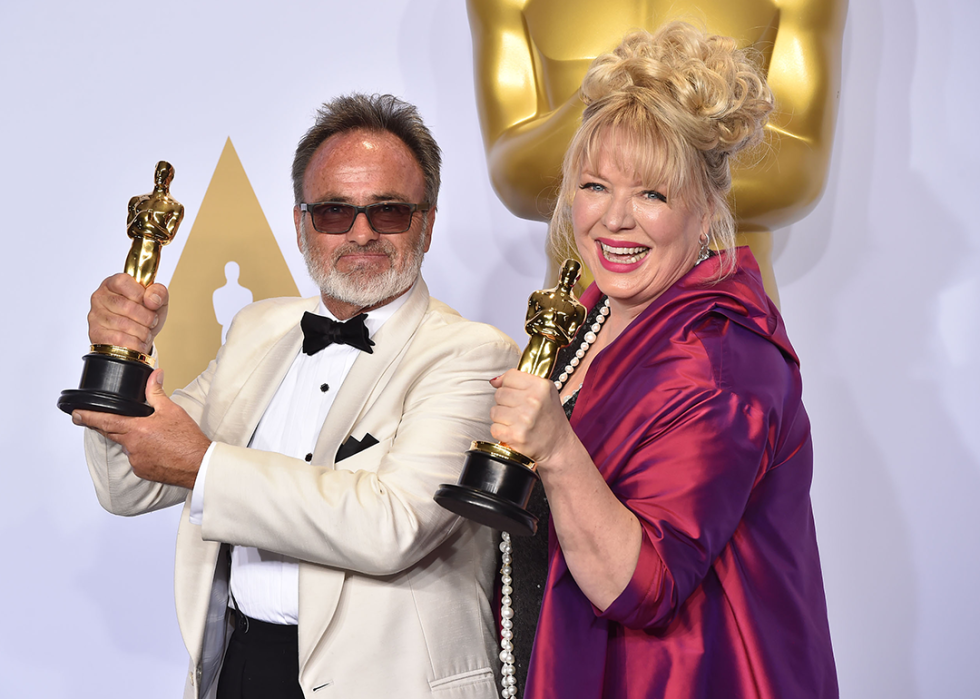
#4. Mad Max: Fury Road (tie)
- Ceremony: 88th (2016)
- Oscar wins: 6
- Oscar nominations: 10
The fourth installment in the "Mad Max" franchise, it was shocking to many that "Mad Max: Fury Road" was even nominated for Best Picture—none of its '80s-era predecessors earned a single nomination. But considering that it was the one of the best-reviewed films of 2015 and it earned well over $300 million at the global box office, the Academy couldn't justify ignoring it. Despite rave reviews from critics, who hailed "Fury Road" as "one of the best action movies ever," the film still lost out to journalism drama "Spotlight."
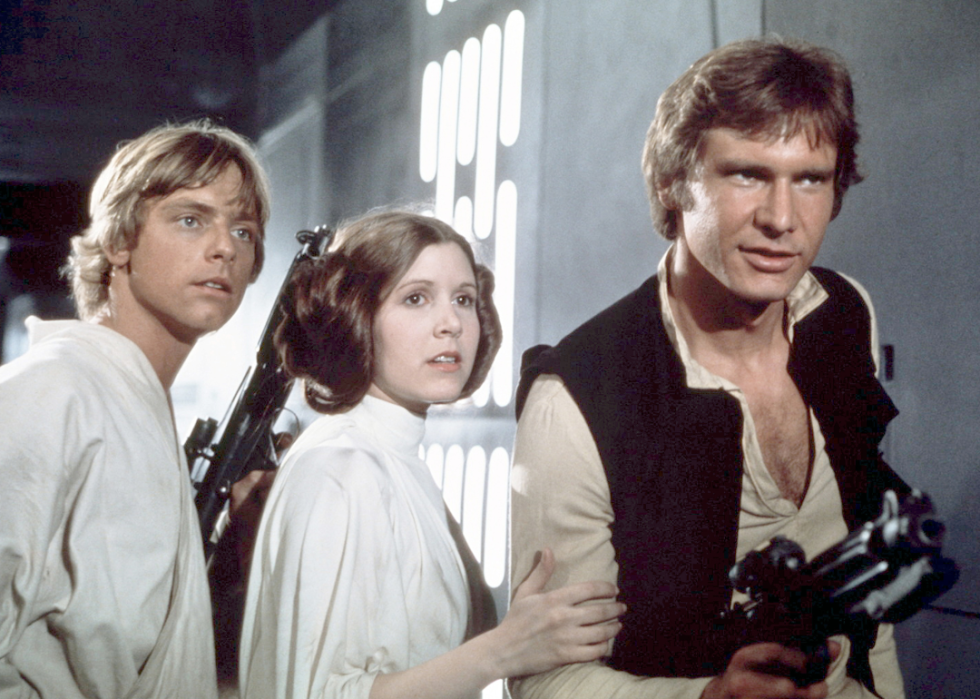
#4. Star Wars (tie)
- Ceremony: 50th (1978)
- Oscar wins: 6
- Oscar nominations: 10
George Lucas' epic space opera was nominated in one of the Academy Awards' toughest years—its rivals for Best Picture included "Annie Hall," "The Goodbye Girl," and "Turning Point." That stiff competition, combined with the Academy's rare recognition of genre films for the night's top prize, contributed to its loss in spite of the film's immense commercial and critical success. Ultimately, the film's Best Picture loss didn't really matter; the original "Star Wars" kicked off one of the highest-grossing film franchises of all time (more than $10 billion to date), not to mention one of the most culturally significant ones.
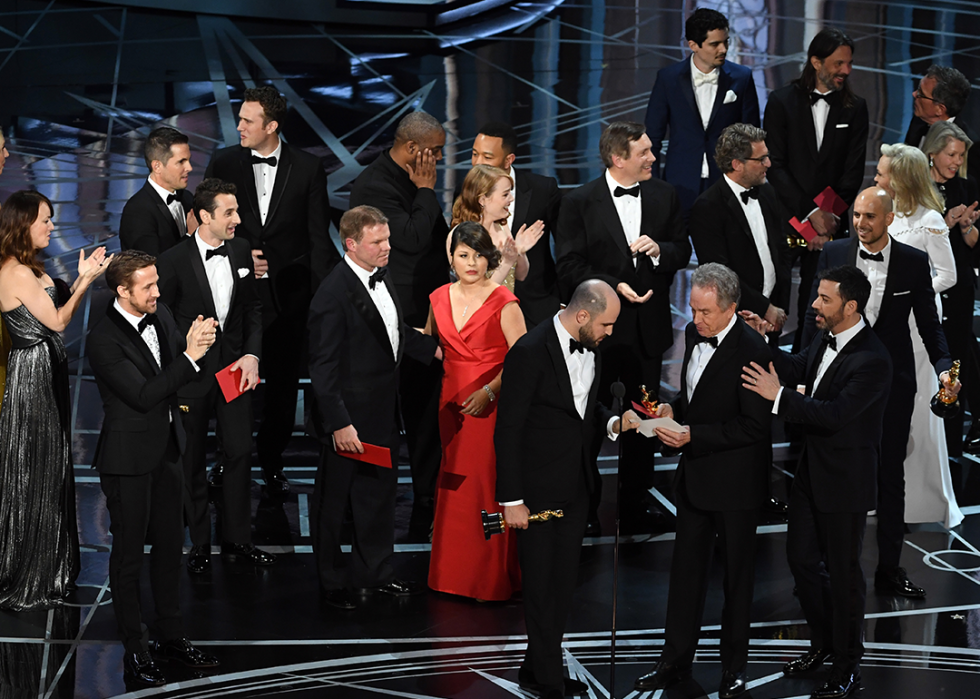
#3. La La Land
- Ceremony: 89th (2017)
- Oscar wins: 6
- Oscar nominations: 14
A musical romance about two performing artists who fall in love while pursuing their dreams, "La La Land" was named a front-runner for Best Picture by multiple critics. After winning six awards at the ceremony, including Best Director and Best Actress for Emma Stone, no one was shocked when presenters Warren Beatty and Faye Dunaway announced that it had won the top prize—until the presenters promptly took that announcement back.
"Moonlight," Barry Jenkins' queer coming-of-age drama, had actually been the night's big winner, but an envelope mix-up led to the devastating kerfuffle that saw the cast and crew of "La La Land" take to the stage in victory before conceding to the true champion.
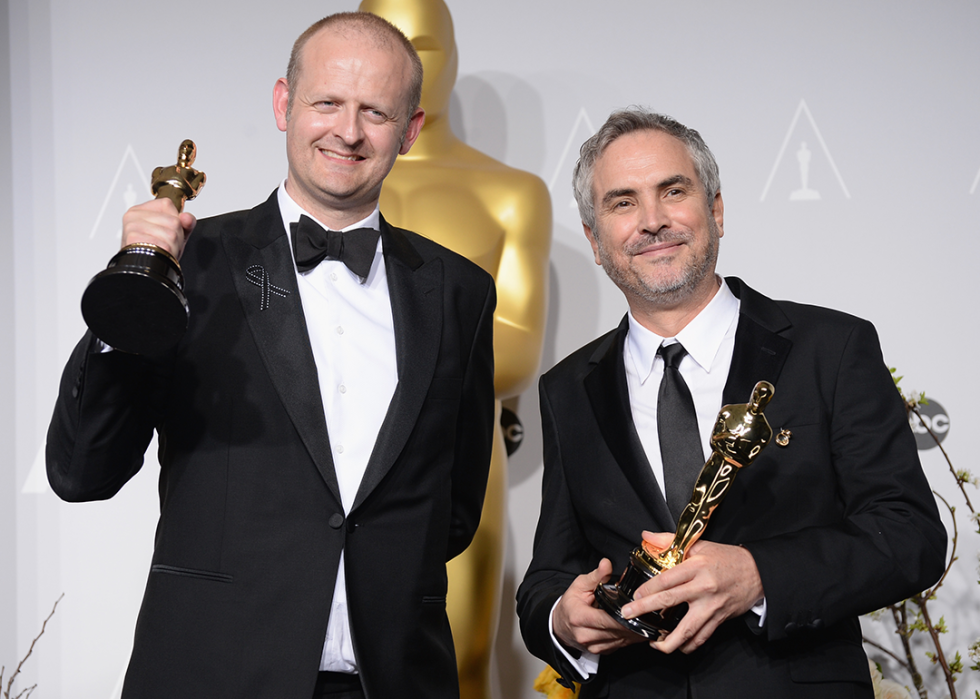
#2. Gravity
- Ceremony: 86th (2014)
- Oscar wins: 7
- Oscar nominations: 10
In "Gravity," Sandra Bullock and George Clooney portray two astronauts who find themselves stranded in space after their shuttle gets destroyed in orbit. Technically astounding, the film was highly praised by critics and was one of the top-grossing films of that year. But its identity as a sci-fi thriller, as well as steep competition from the eventual winner, Steve McQueen's highly respected slavery drama "12 Years a Slave," combined to keep "Gravity" from flying high enough to win Best Picture at the 2014 Academy Awards.
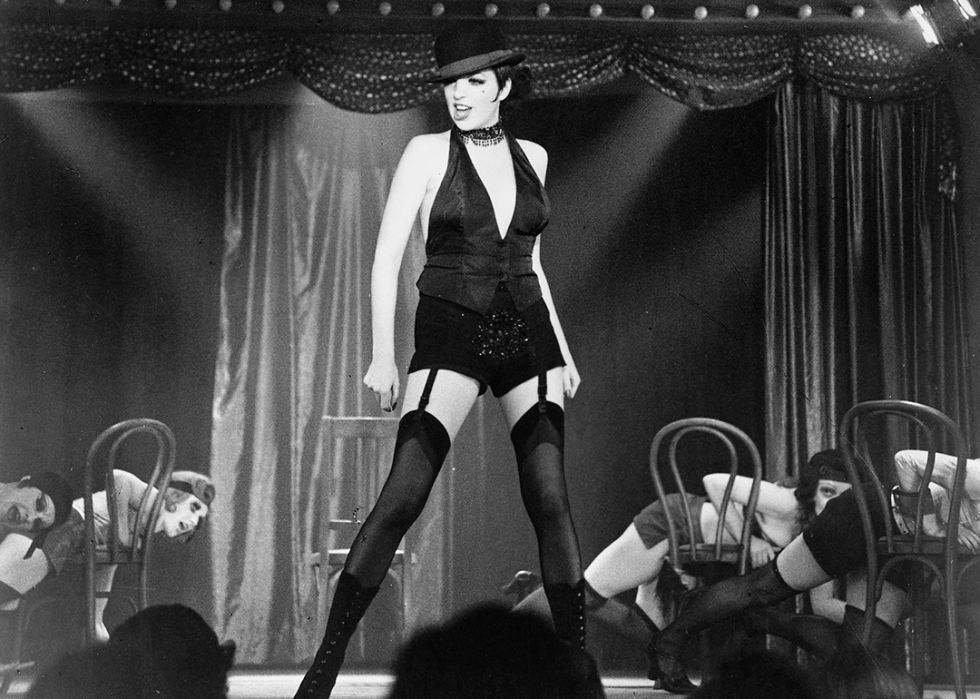
#1. Cabaret
- Ceremony: 45th (1973)
- Oscar wins: 8
- Oscar nominations: 10
The film with the most Oscar wins that didn't win Best Picture is "Cabaret," a musical period drama about a club entertainer in Berlin who begins romances with two very different men while the Nazi party begins its rise to power. Starring Liza Minnelli, Michael York, Helmut Griem, and Joel Grey, the film was beloved by audiences, and critics like Roger Ebert praised the way it refused to fall into typical musical clichés. In the end, however, it lost to Francis Ford Coppola's "The Godfather"—a tough film to beat, considering the mob movie continues to top lists of the greatest films ever made.
Data reporting by Luke Hicks. Story editing by Eliza Siegel. Copy editing by Tim Bruns.



